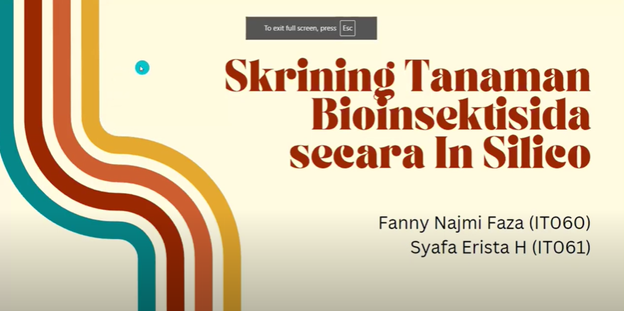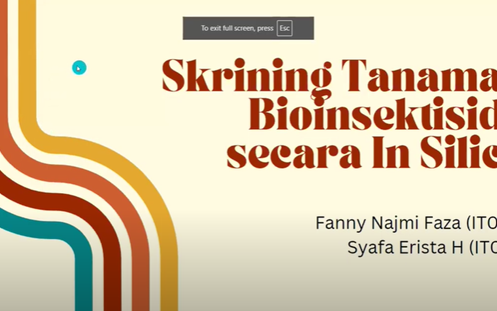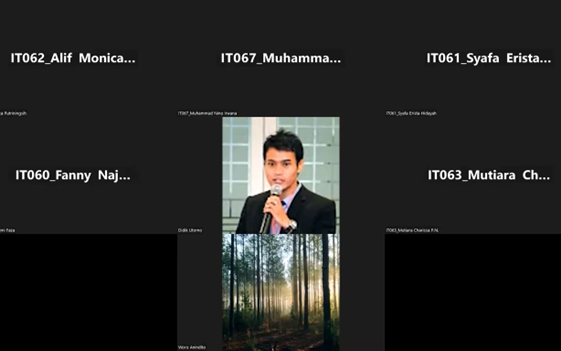
Yogyakarta, June 21, 2024, The MBKM Research, two biology students from Universitas Gadjah Mada, Syafa Erista Hidayah and Fanny Najmi Faza, have initiated a promising study on screening plants with bioinsecticide potential, supervised by Woro Anindito Sri Tunjung, S.Si., M.Sc., Ph.D. a lecturer from the Faculty of Biology UGM, and Didik Huswo Utomo, Ph.D., from INBIO. The study focuses on the utilization of 10 Citrus species, including Kaffir lime (Citrus hystrix), Key lime (Citrus auratifolia), Mandarin orange (Citrus reticulata), Siam orange (Citrus nobilis), Sweet orange (Citrus sinensis), Pomelo (Citrus maxima), Limon (Citrus limon), Grapefruit (Citrus paradisi), Citron (Citrus medica), and Calamondin (Citrus microcarpa). These species are recognized for having volatile compounds that can interfere with the olfactory system of mosquitoes and may even be lethal to them. These compounds can develop into bioinsecticide agents. Bioinsecticides, or natural insecticides, are substances derived from natural materials that are toxic to insects, including mosquitos. Bioinsecticides effectively reduce mosquito populations that serve as vectors for diseases such as dengue fever, are biodegradable, and do not leave residues or pollute the environment.
The research was conducted over two semesters: the even semester of 2023/2024 until the odd semester of 2024/2025. During the even semester of 2023/2024, various programs were used to screen the potential compounds, including visualization analysis of the integration between species based on the similarity of volatile compound content and interactions with odor receptors in Aedes aegypti mosquitoes. Subsequently, in the odd semester of 2024/2025, molecular docking involves visualizing the interactions between compounds and odor receptors in these mosquitoes. This research supported by weekly meetings, aimed to ensure intensive collaboration and discussion on the research progress. The study is expected to yield significant findings that can foster the development of environmentally friendly bioinsecticide products that can be applied by the community, thereby reducing the use of conventional insecticides that can cause pollution. Furthermore, this activity facilitated students to apply the theory learned in class to practical research, enhancing their competence in conducting technology-based scientific research and improving their writing skills to produce distinct, structured, and scientifically reliable research reports in the form of journals.




